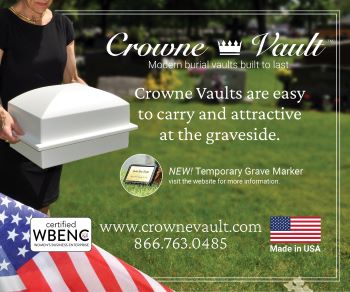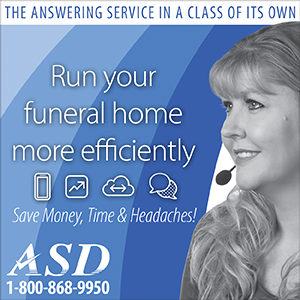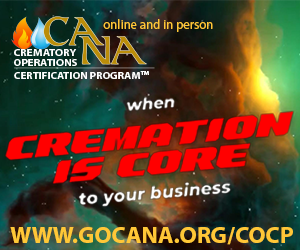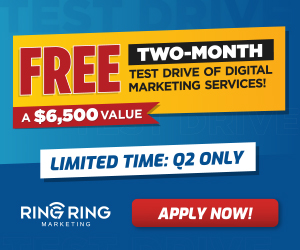A new world of death care start ups
 Earlier in July Funeral Director Daily featured an article entitled, “Does death care have a consumer influencer?” The article pertained to our profession and wondered out loud if death care had someone that was able to “influence” consumers as to their choice of death care. That “influencer group” is in a lot of other industries and the article questioned who influences death care.
Earlier in July Funeral Director Daily featured an article entitled, “Does death care have a consumer influencer?” The article pertained to our profession and wondered out loud if death care had someone that was able to “influence” consumers as to their choice of death care. That “influencer group” is in a lot of other industries and the article questioned who influences death care.
And, we all know that the death care consumer will – and already is – evolving in their decision making process. We’ve even seen entrepreneurial starts ups in our profession create new categories of death care for purchase. Think of Recompose (human composting), Parting Stone (solidified cremation remains), or Better Place Forests (perpetual memorials) as creators of some of those new categories that will probably move into the death care mainstream over the next decade.
However, an article from last week and published in the New York Times entitled, “Boom time for death planning” really upended my thought process in who is looking for new ideas in death care planning and how open the death care profession has to be in working to solve the issues and opportunities relating to those ideas that are already prevalent out there in society.
The article brings to light that the COVID-19 pandemic has brought end-of-life planning to people as young as their mid-20’s. This new thought process of “pre-need” is pushing the envelope to ages I would have never thought of in my time writing pre-need policies. Our target market was those 55 years of age and older.
The article mentions that “Since COVID-19 . . . Millennials are newly anxious about their mortality, increasingly comfortable talking about it and more likely to be grieving or know someone who is.” Young people are, according to the article, wanting to “mark their digital legacy” in case something happens to them.
The article continues to talk about the company, Cake (www.joincake.com), that is a “free service that catalogs users’ end-of-life wishes,

Tom Anderson
Funeral Director Daily
instructions, and documents”. Cake’s co-founder, Suelin Chen, says, “The stigma and taboos around talking about death have been way reduced. From February to June, people signed up with Cake at five times the normal rate.”
Chen also states, “In the modern age, the norms around supporting people who are grieving are not super clear. It used to be that you belonged to a religious community or lived in a small town, but now we’re far away from where we grew up. We’re more secular.”
Cake, and some other companies like it, are finding their ways into the mainstream of major companies who are providing services such as “trusted decision maker” platforms to employees as part of their employee wellness plans. Liz Eddy, co-founder of the Cake competitor, Lantern, says this, ‘We’ve been called a niche market. But death and dying is possibly the least niche market out there. Corporations are rethinking the wellness programs they’re offering employees. They’re no longer just gym memberships and kombucha on tap. Studies have found that being able to talk about your mortality makes you a happier person and improves your relationships. The thinking, for employers perhaps, is that access to end-of-life services can make people happier (and more productive) at work.”
Funeral Director Daily take: This article opened my eyes about what the next generations will be thinking re death care. I actually think it is a very good sign for the death care profession that people in their 20’s and 30’s do think about their mortality and legacy. . . even if it is in a digital format.
It tells me that legacy matters. And, quite frankly, that is what monuments and columbariums in cemeteries are for. . . legacy. Where the death care industry has to eventually evolve is to a place that is comfortable for these people to preserve their legacy. I think 20 or 30 years from now it won’t be monuments and columbariums. . . .but, maybe it will be trees and nature. The really positive news for our profession is that there is a sense of legacy that even younger people aspire for.
This article also brought me back to the year 2001 when I received my insurance preneed license. I thought preneed would be a good employee benefit at larger companies. I talked to Human Resource leaders and even to CEO’s about offering it to their employees in a pre-tax format as part of their benefits package. That was two decades ago and nobody was interested in putting death care related items, other than life insurance for survivors, in their employee benefits packages.
Well, two decades later thoughts have changed and it appears that some employers are interested in the peace of mind that having end-of-life planning for employees might bring. Knowing that mining today’s alternative sales channels might in the future bring in a mother lode, if I was a preneed insurance company or a nationwide network of operations like Neptune Society, I think I would be trying to get discussion going with Cake and/or Lantern to see if I can be a provider to them in a way that could be beneficial to all parties moving forward.
[wpforms id=”436″ title=”true” description=”true”]



















